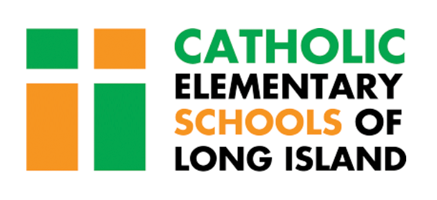One of the biggest challenges faced by teachers across the elementary schools of the Diocese of Rockville Centre has always been opportunities for collaboration. Due to geographic constraints, the parish and regional elementary school teachers historically faced logistical issues which limited their ability to meet with their grade level and subject area peers from other schools. In many of the elementary schools, teachers do not have a grade level partner where at least one other teacher teaches the same subject and grade level.
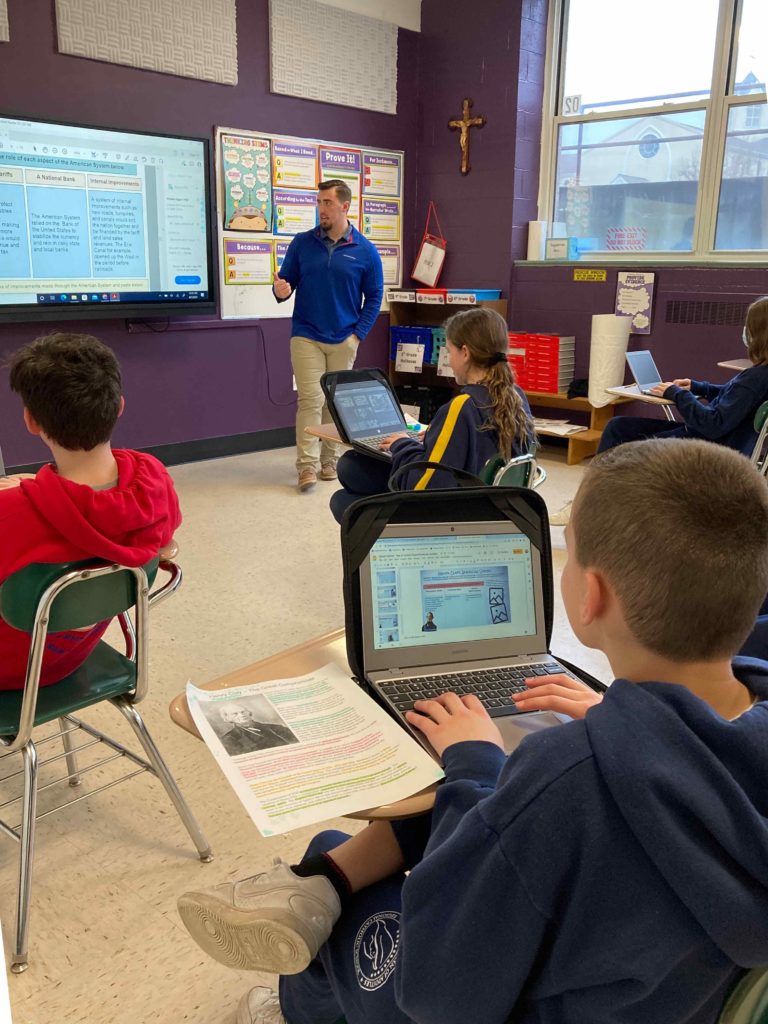
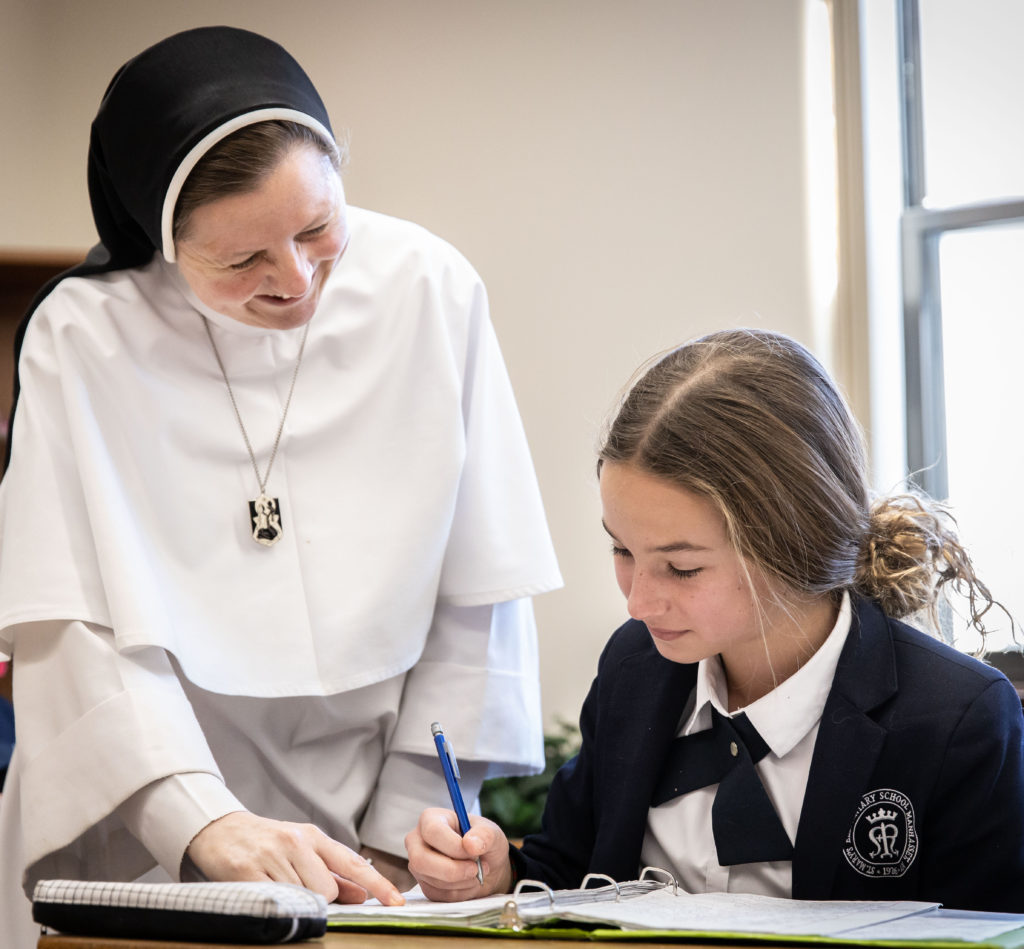
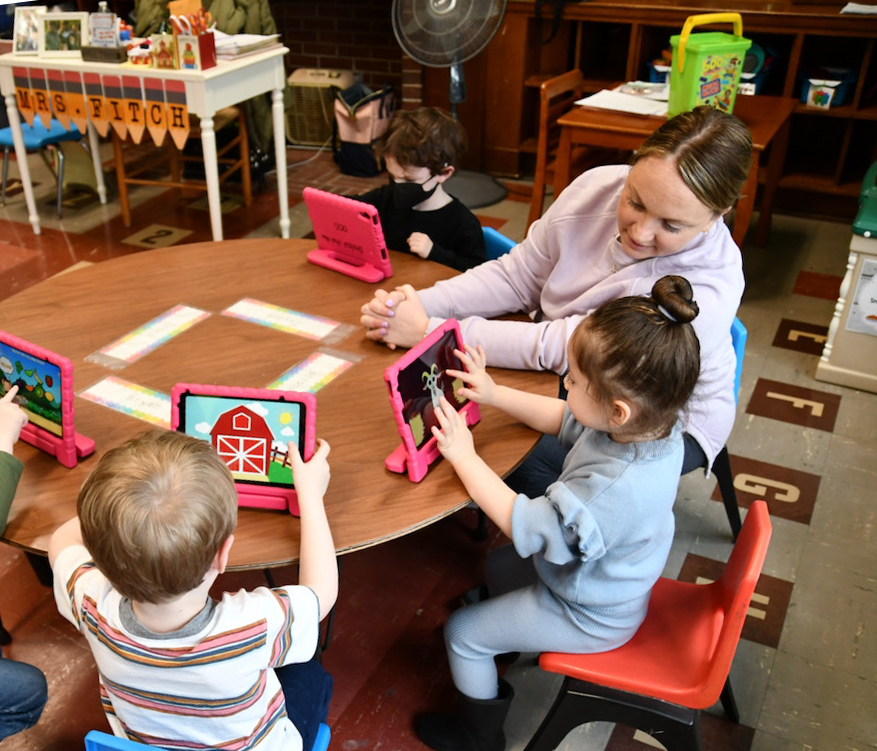
^ Curriculum Leads helps teachers connect with other teachers. This improves classroom instruction and brings new vitality to curriculum.
The COVID pandemic changed this. Due to the quick shift to remote learning at the start of the pandemic and the availability of online meeting technology, the Curriculum Lead program was introduced by the Morning Star Initiative to address the pillar of Academic Excellence. Principals were asked to nominate highly effective teachers who could help their peers navigate the remote learning environment. These teachers became the initial Curriculum Leads for the Diocese. Since Spring of 2020, these Curriculum Leads have met regularly with their grade level and subject area peers to promote rigorous academics and collaboration across our schools. Additionally, the leads meet regularly throughout the school year as a team under the direction of Brian Colomban, Assistant Superintendent for Data and Instruction. Mr. Colomban shared, “Facilitating the CLT for the past 18 months has been the most rewarding part of my role as Assistant Superintendent. I leave each meeting with such a positive outlook on the future of education in our Diocese. I’m blessed to work with a group of such talented and dedicated teachers.” An additional benefit of the lead meetings is the ability of the teachers to be able to speak with members of the Department of Education about issues of concern to them as well as learn as well as hear first hand about important initiatives.
Initially, the program was intended to provide support for teachers throughout the COVID pandemic, including how to use technology tools for remote learning; sharing units, lessons, and resources; and enabling teachers to connect with colleagues while working from home. When schools reopened their doors in September 2020, the program shifted to supporting teachers as they transitioned back to teaching within the building under COVID restrictions. Today, the program continues to support teachers in their everyday professional practice.
Since the start of the program, the Curriculum Leads have worked on topics such as identifying priority standards (which will lead to Diocesan-wide curriculum mapping), classroom management, sharing unit plans and lessons, developing professional learning communities, data-driven instruction, and social-emotional learning. Moreover, the regularly held curriculum meetings provide an added layer of support for new teachers in the parish and regional elementary schools. They serve as a place where these teachers can learn from their more-experienced peers, ask questions, discuss pedagogy, and more. Another important role the Leads play is in sharing best practices for using i-Ready in the classroom, both as a diagnostic tool and for personalized instruction.
Currently, there are thirty-one Leads from eighteen schools representing every grade level from nursery through grade eight, with teachers in grades five through eight meeting in their specific subject areas. There are also six special subject areas that meet regularly, including a pilot for Physical Education that the Department of Education hopes to expand to a full program next year. Each Lead meets with their grade level colleagues for a total of six hours per semester (eighteen hours per year). These meetings provide an opportunity for teachers to collaborate, share successes, and get support for challenges they are facing. Teachers are also given professional development in topics of relevance to them. Moreover, each group has its own Google Classroom where collaboration and sharing of resources continues beyond the live meetings.

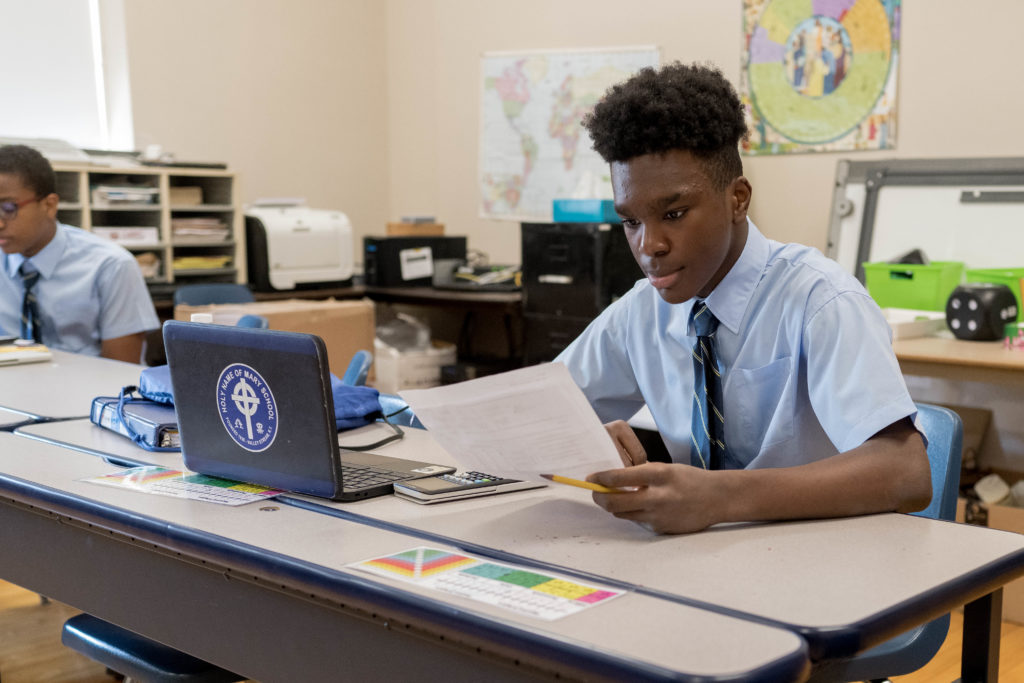
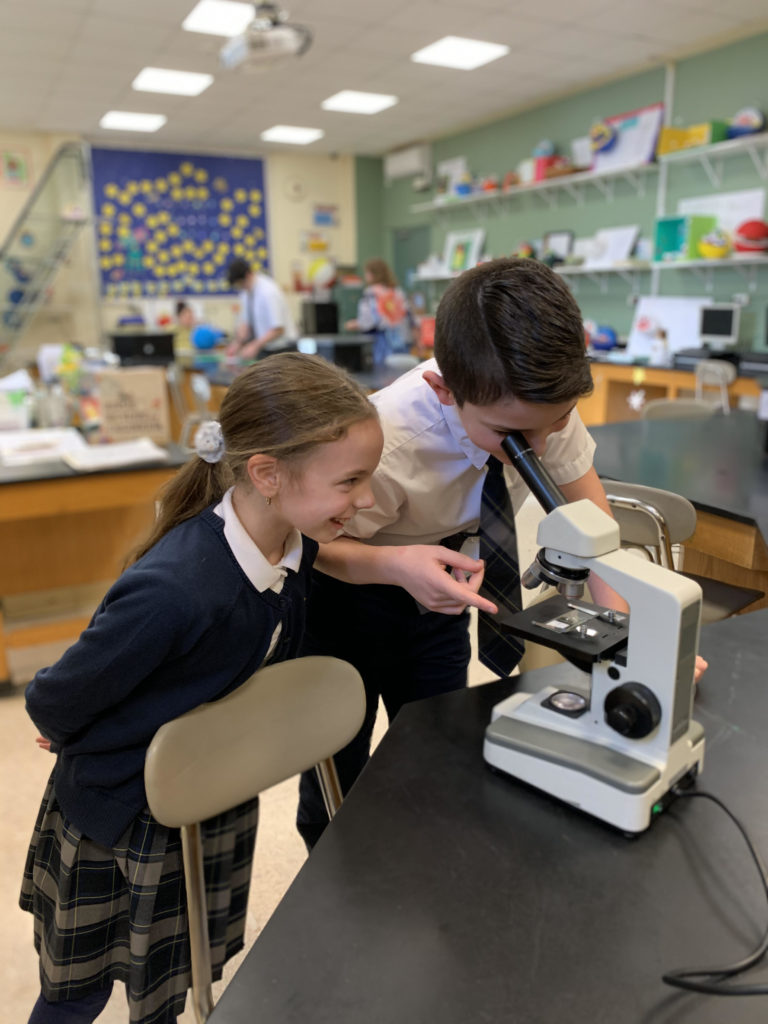
Through the Lead meetings, Department of Education (DOE) initiatives are also shared with teachers in each school. During the 2021-22 school year, the Lead teachers participated in a year-long book study on Facilitating Teacher Teams and Authentic PLCs by Daniel R. Venables, through the support of our local teacher centers. Through this study, they learned about facilitating teacher meetings, questioning techniques, using data to inform instruction, and more. Thanks to the strength of the Curriculum Lead teachers, the DOE is able to turnkey professional development to all teachers effectively.
During approximately half of the Lead meetings this year, the Lead teachers are participating in professional learning on differentiated instruction provided by the Long Island Professional Development Resource Center. The Leads then relay what they have learned during their own grade level and subject area meetings. Another important initiative the Leads are overseeing this year is the identification of priority standards. The Leads are working with their colleagues during their meetings to identify which of the New York State Standards are a priority for them to address, as well as secondary and tertiary standards. Through this work, the Leads are laying the foundation for the development of updated Diocesan curriculum maps.
The Curriculum Leads gain as much from their regular sessions as their fellow colleagues do. The Leads regularly share that these sessions provide an opportunity for teachers to share wonderful resources, ideas, and best practices as well as talk about topics of importance affecting both their specific grade level or subject area along with issues of importance to all elementary school teachers. Anne Marie Donnelly, St. Mary’s Elementary School (Manhasset) Teacher and Eighth Grade Science Curriculum Lead shared, “It is through the Curriculum Lead program that middle science teachers have improved their science lessons. Through shared lessons and bi-monthly meetings, science teachers are able to collaborate on a whole new level. We follow the newest science standards and implement lab activities that bring science to life. Together, we share a passion for science education. We truly believe that we are making the world a better place, one Catholic school at a time.”
According to Rich Capuano, Seventh Grade Science Lead, and Concetta Veltri, Kindergarten Lead, both from Our Lady of Peace School in Lynbrook, “The Curriculum Lead program empowers and supports teachers in helping one another to integrate community, academics, and faith into their classrooms. It not only elevates student achievement but also fosters a culture of collaboration, continuous improvement, and spiritual growth among educators.”
Regina Millman, the Academic Intervention Services Lead and AIS teacher at St. Joseph in Garden City noted, “Most schools have only one AIS teacher, so having this group means a great deal to us as we are able to collaborate with each other. We use this time to share our “Roses and Thorns”, discuss a particular topic, share resources with one another and offer assistance to each other. Participating in this group makes us feel like we are members of a team. Our goal is to work together to create a successful community where all members feel valued and heard and I think we are doing just that.”
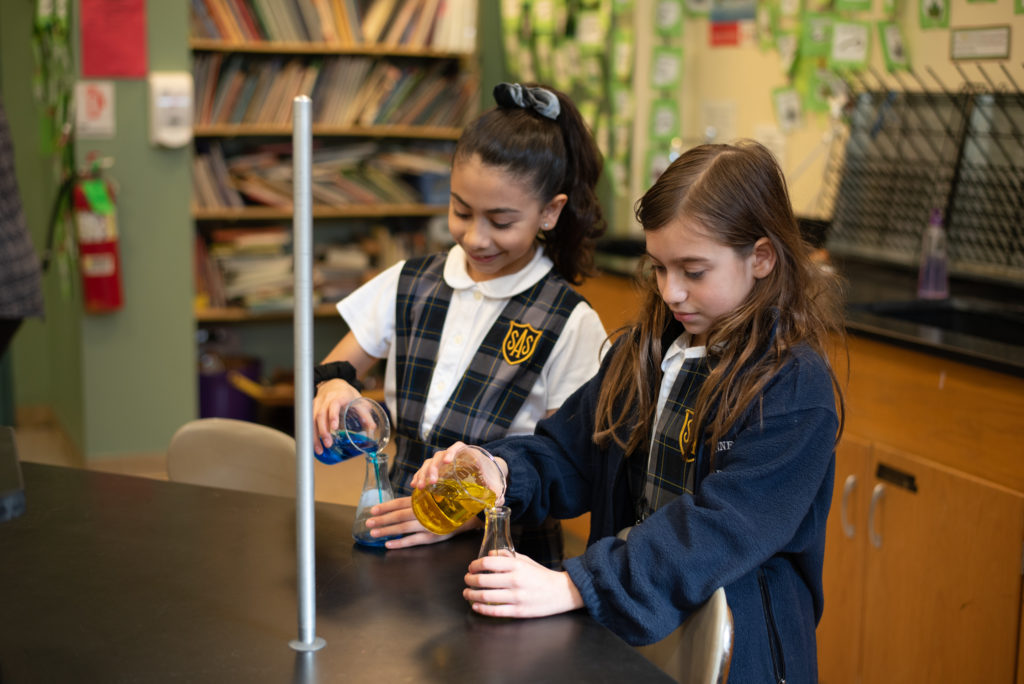
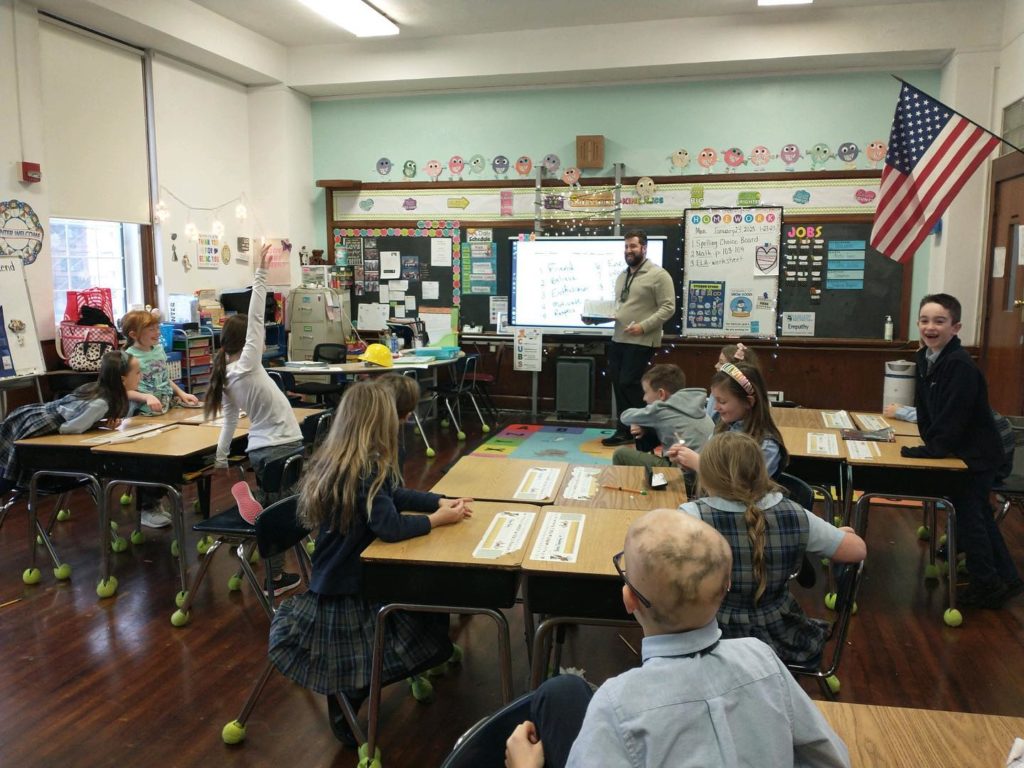
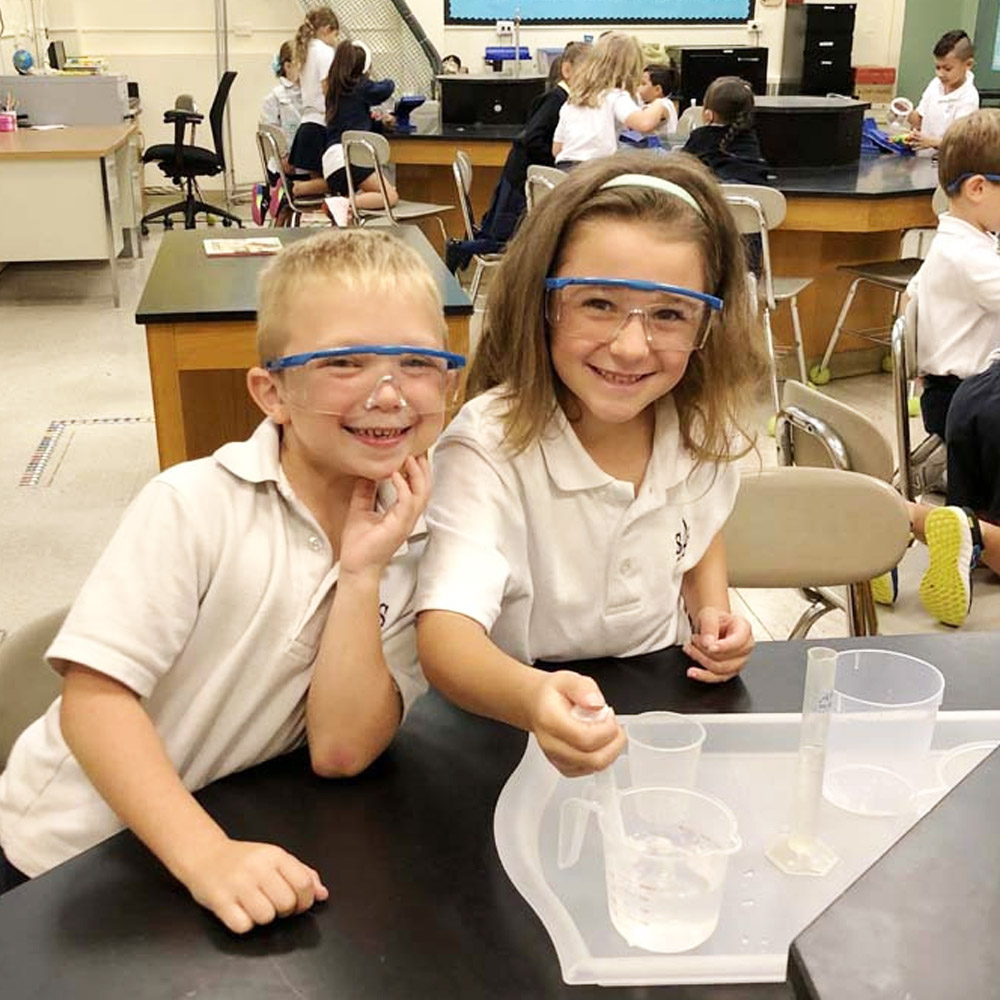
The impact has been evident in the elementary schools. Principal Patricia Ayers of Trinity Regional School in East Northport noted, “The Curriculum Lead program has been an invaluable tool to ensure academic excellence and consistency throughout the Diocese. The teachers can collaboratively plan and work together under the guidance of lead teachers that helps to ensure all schools provide a rigorous curriculum to their students. I am thankful for the opportunities this program has provided our teachers and in turn our students.”
Even more telling is the response to the meetings from teachers. See what the elementary teachers have to say below:
- “I like that we know the AIS teachers in other schools. I like that people can share good/bad experiences. I think it’s helpful when we talk about activities/websites/ manipulatives that others have found helpful and fun for the students.” – Barbara Varous, St. Aidan School, Williston Park
- “I enjoy our meetings. I get a chance to hear from everyone and it makes a difference when I’m creating lessons or unsure of topics. The room is very inviting and everyone listens to each other and builds off each other. We share available websites/resources and how effective they are in the classroom. There is never anyone taking over or making others feel that they are better than them. If I was not part of the meetings then I wouldn’t be exposed to any of the other teachers from the other schools. To me, our collaboration is important because it makes me better at my job.” – George Dancause, Trinity Regional School, East Northport
- “It is so valuable for the resources that we share with one another. As the lone AIS/RTI teacher in my school, it is so helpful to hear what others in my position are doing and experiencing. It’s so helpful to be able to discuss issues and concerns I might have, and have colleagues’ perspectives. You provide a wealth of knowledge as well, which is so appreciated!!” – Joyce Schuler, St. William the Abbot, Seaford
- “The technology curriculum meetings have allowed me to collaborate with colleagues who have enriched my teaching experiences with students, leading to more engaging and fruitful classroom experiences. It also gives educators a forum to ask questions and learn from each other without judgment. It creates a true community experience.” – Maria Conte, St. Rose of Lima School, Massapequa
- “The curriculum lead meetings are a great resource not only for sharing lessons, learning new technologies, and staying up to date on standards and news but as a way to touch base with fellow teachers to commiserate, laugh, and sometimes cry. They are truly a blessing.” – Lorraine Letteri, Our Lady of Lourdes School, Malverne
- “The program has proven very valuable to me as it has helped me gain new insights on the way to teach some of the topics that I have been teaching for decades. But, most of all , it allows me to be able to talk to a group of peers and share successes and the disappointments. That enables me to be more comfortable and more confident and realize we are all experiencing the same issues and joys and we learn from each other’s experiences both professionally and personally.” – Lisa Hartel Goodman, St. Brigid / Our Lady of Hope Regional School, Westbury
- “As a first year teacher with the Diocese the “CLP” for Science has not only been helpful, but has afforded me an opportunity to best assist my students in their learning process by modeling an education plan designed by a very experienced and knowledgeable professional. In addition, having immediate direct electronic access to the lead teacher has been valuable in the event any questions or concerns of mine arose.” – Edward Scali, St. William the Abbot School, Seaford
The Curriculum Lead program has proven to be an invaluable resource for the elementary school teachers within the Diocese and helped to bridge connections among the elementary schools. The Department of Education plans to continue this important program to ensure that teachers are given regular opportunities to collaborate and support one another.
